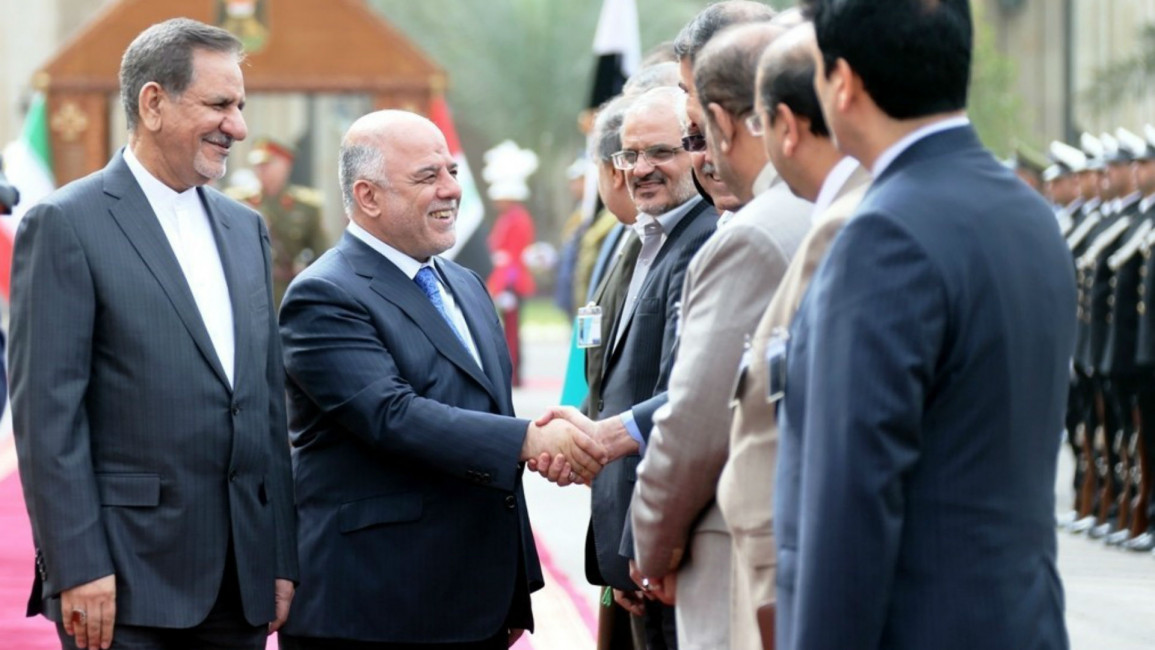
Is now the time for a US-Iran alliance?
Responding to the question of whether American and Iranian interests have now aligned with the threat of the Islamic State group (IS, formerly known as ISIS) in Iraq, John Brenner, the CIA's director, made little effort to refute the potential of an alliance between the two countries.
Although the age-old blanket of secrecy covering Iranian interventionism in Iraq appears to be lifting, the nature of US-Iran cooperation remains unexpressed.
| The age-old blanket of secrecy covering Iranian interventionism in Iraq appears to be lifting. |
Brenner's affirmation that there is "an alignment of some interests between ourselves and Iran" does however mark a significant rhetorical shift from US President Barack Obama's pledge last year that there would be neither 'boots on the ground' or authorisation for a combat mission against IS.
No legs to stand on
Obama's promises quite evidently haven't any legs to stand on, especially since the recent deployment last November of an additional 1,500 soldiers to Iraq.
While he made a small mistake in mentioning that the eradication of IS would "not be America's fight alone", Brenner's remarks did highlight a decisive break from Wahington's previous position on Iran's involvement in Iraq.
However, more interesting is how Iran and the US, prior to Brenner's remarks, have issued mutually inconsistent statements about potential cooperation to secure the defeat of IS and its affiliates in the wider Middle East region.
In a televised address on Iranian state television last year, Iran's supreme leader, Ayatollah Ali Khamenei, is said to have dismissed Washington’s efforts to decimate IS as meaningless and self-serving, accusing the superpower of seeking unauthorised military presence in both Iraq and Syria.
While Khamenei's warnings may be seen as a positive move for chastising the US for its continued occupation of Iraq, Iran also stands accused of fishing for an opportune moment to transform itself into an extraterritorial authority beyond its national borders.
Brenner's frankness, while pleasantly refreshing, is equally unsurprising in light of recent evidence exposing the mushrooming presence of Iranian proxy militias in Iraq, otherwise known as Hashad al-Shaabi, or the Popular Mobilisation Committees.
Marriage of convenience?
To assume that Brenner's remarks can satisfy the interests of all stakeholders involved is misguided. More broadly, without a comprehensive strategy that takes into account the demands vocalised by all of Iraqis - the visible and the invisible - the likelihood of a prolonged conflict with IS can only increase.
If the US is to live up to its self-described image as promoter of peace and democracy, its plan of action cannot be one that manifestly excludes Sunni Iraqi communities and other minorities from the negotiating table.
Nor can it be one which hypocritically assumes a capability to dissolve doctrinal and ideological differences between rival groups.
Therefore, the core dilemma as it stands is whether consensus can genuinely be formed through a process that might override the sovereignty of the central Iraqi government and popular opinion in Iraq.
Contrary to Brenner's belief that working closely alongside Tehran and Baghdad can "advance our common objectives against IS" many Sunni analysts believe that these dangerous liaisons could result in a new era of sectarian violence.
The timing of Benner's comments are also telling as they came amid a week of heightened tensions, and days before control of Tikrit slid back into the hands IS fighters, according to reports yesterday.
This particular development has reignited controversy over Iran's motives in Iraq and its agenda in the wider region.
One thing that is certain is once Iran's involvement in Iraq becomes officially authorised, it is unlikely that its troops, shadowy commanders and advisors will voluntarily pull out of the country.
Opinions expressed in this article remain those of the author and do not necessarily reflect those of al-Araby al-Jadeed, its editorial board or staff.




